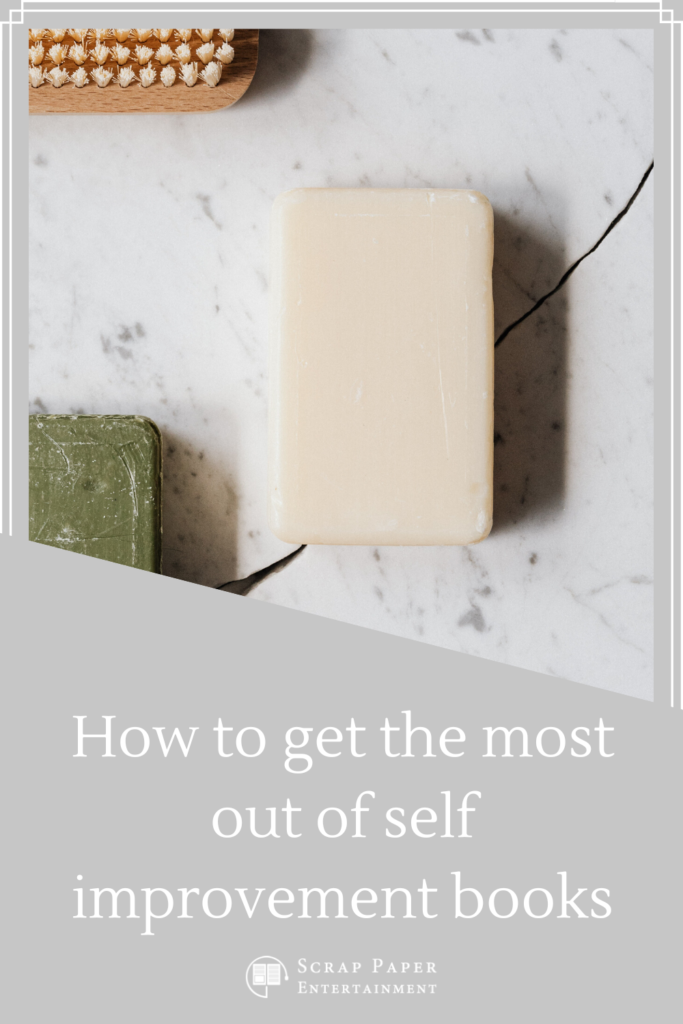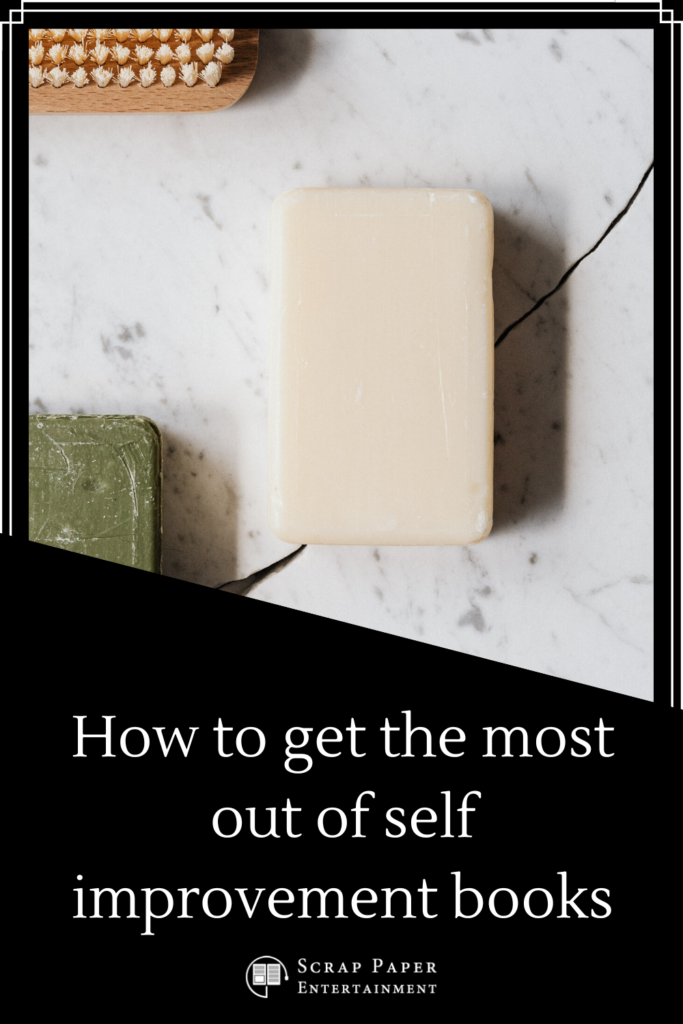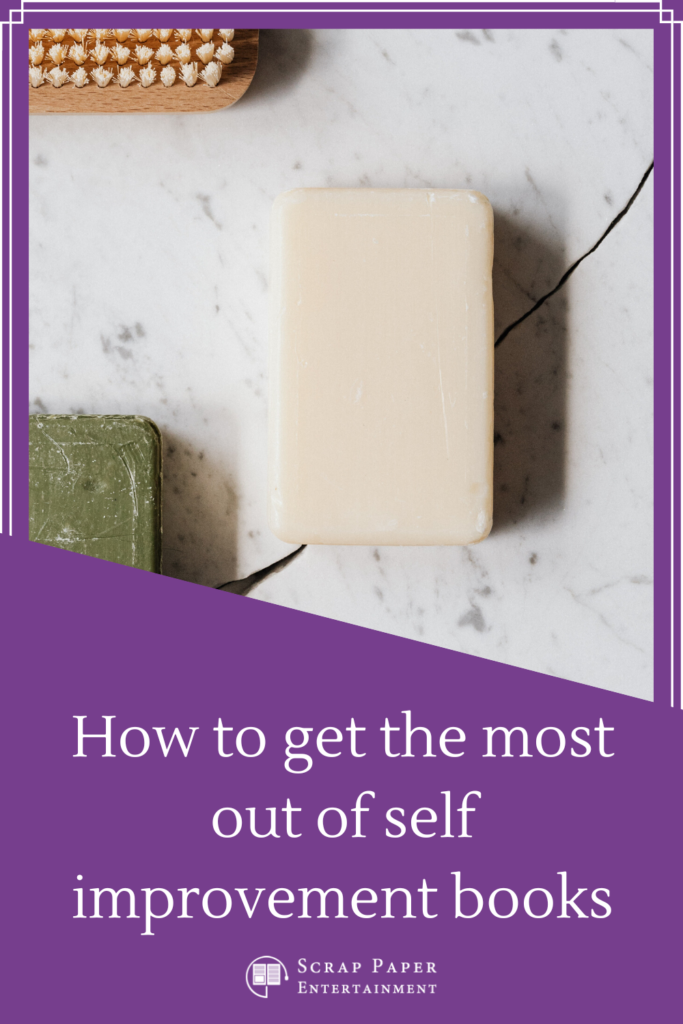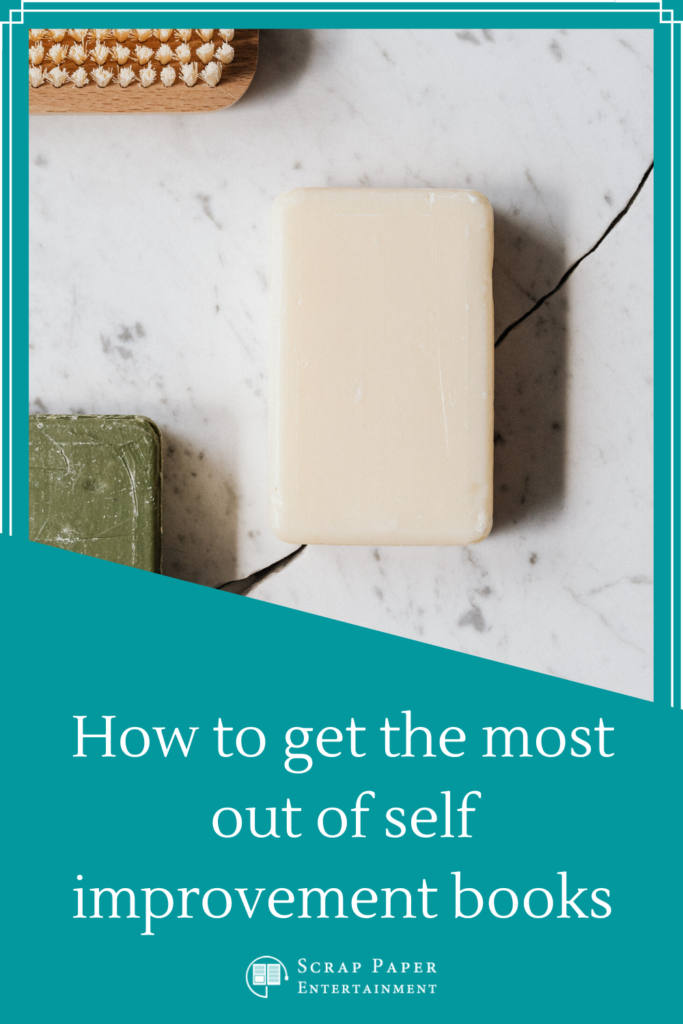I have been trying to read more widely over the last couple years in an attempt to better myself, which has mostly meant that I’m reading a lot of books available at my library. Which, for some reason, has been a lot of self improvement books.
Well. I wanted to improve myself.
Thing is that I don’t really like a lot of them. The advice is very narrowly tailored to a specific audience without any consideration to intersectionality of any kind ((Such as maybe someone is not in complete control of their time)) and the most popular ones seem to have the ongoing trend of insisting that their methodology is the only one that works and that everyone else is living their life incorrectly. The studies cited don’t take into account the fuller context of what was going on, or they just eliminate the failures from the narrative entirely, if they don’t say that those failures were not doing it right.
But that’s not to say that they are all actually terrible. And I have not been putting them down, but making it through to hear them out. Which means I think I’ve figured out basically how I’m supposed to read these books now.
Understand the problem they are solving
At the start of these books is usually a thesis statement of some sort. There is a problem in your life and this book is just the tool you need to solve it.
Most people’s lives are not comprised of just one issue that needs to be resolved, though, so it’s important to get an understanding of precisely what one issue they are looking at discussing in the book. You are overwhelmed with tasks to do. You are uncertain what to do with your career. You don’t have enough money. Solving one of these issues won’t solve your whole life, but it will provide you with some insight into what some of the causes of that problem might be.
The descriptive factors of these books are usually pretty good
Over the course of many of these books, they will bring up more specific elements of the problem they are trying to solve. This is usually paired with a description of the problem and some of the underlying causes of it. I have found that, in most cases, these are pretty good insights.
The solutions are a suggestion
The place where I am constantly falling off on these books is the prescriptive parts where they talk about what the solution for the problem is. This is almost always where the lack of understanding of how people actually work come into play.
Many of these books will offer the one thing that will fix the problem they are describing. This is the way they have personally found to have worked. Often, these are worth at least trying if you have not already tried it out, just to see if it is compatible with the way you live your life. But it will usually not actually be the only way and you may need to modify it to make it better suit your situation.
It sells better if they give you a solution
One of my biggest issues with this whole genre is that the problems are what I relate to, but the solution is just not something that works either for the way my life is structured or my situation, but I am constantly reminding myself that this is the selling point.
In many cases, these books are written for the person who is running out of options, who have already tried as much as they can to resolve the issue on their own, and who are just looking for answers that they have not been able to find on their own. Having something relatively authoritative describing the thing you are dealing with and handing you a solution is going to resonate a lot better than the books that give a structure of how to solve the problem for yourself.
Take the intent and modify
I’ve found the most useful elements of the solutions offered in these kinds of books to be something where the core of the solution comes from a place of resolving the issue and figuring out how to make it work best for me.
I didn’t particularly like Getting Things Done, but I like the practice of dumping all of the tasks out onto a list and sometimes, when I’m overwhelmed, just doing them in the order they are written. I have my issues with Newport, but I do ultimately like carving out long, unbroken stretches of time in my calendar to get some deep work done. Marie Kondo rubs me the wrong way, but I really like the idea of keeping the things that bring me some joy or comfort and use that as a measure for what to get rid of when I’m decluttering.
Reading these books, regardless of whether or not I’ve liked them, have introduced a lot of new ideas into my life and some practices that I’ve continued with. It’s just a matter of making sure I’m remembering to frame the contents in the context of my own life, taking what works well, and leaving the rest as something that might work better for someone else.



